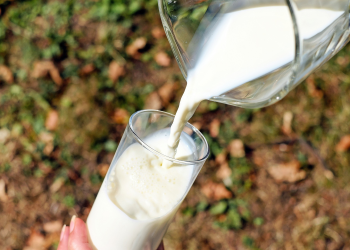Unrefined raw sugar cane, also known as non-centrifugal sugar (NCS), stands apart from its refined counterparts due to its unique health benefits. It is crucial to distinguish between truly unrefined raw sugar and products labeled as “organic sugar cane” or “organic cane sweetener,” which are essentially refined sugars despite their organic farming methods.Processed sugar, including purported “raw” varieties, undergoes an intensive procedure comprising heating, purification, and desiccation of cane juice until crystallization occurs. These crystals are then separated from the molasses-rich syrup through centrifugation, creating refined sugar crystals. Even brown sugar is merely refined white sugar with a dash of molasses. This refining process involves various chemicals and removes most of the vitamins and minerals, leaving behind “empty carbs.”
In contrast, non-centrifugal sugar (NCS) is simply unrefined raw sugar cane. It is obtained by evaporating the water in sugar cane juice, resulting in a product rich in nutrients. NCS goes by several names globally, such as unrefined muscovado, whole cane sugar, panela (in Latin America), jaggery (in South Asia), kokuto (in Japan), and Rapadura (Rapunzel brand). NCS is produced without the use of chemicals or anti-caking agents, and its color variations depend on the heating process during production. Its nutritional profile is far superior to that of refined sugars, boasting vitamins, minerals, and a subtle caramel flavor.
Sugarcane juice contains various compounds, including policosanols, long-chain aldehydes, volatile aromas, and antioxidants. Active constituents like apigenin, tricin, and luteoline glycosides have been found to offer anti-inflammatory, analgesic, anti-hyperglycemic, diuretic, and hepatoprotective effects. The presence of iron-rich molasses along with natural absorption enhancers like sulfur, fructose, and copper makes raw sugar cane juice beneficial for managing iron deficiency anemia. In traditional medicine systems like Ayurveda and Unani, sugarcane derivatives are recommended for liver health and as a remedy for jaundice.
Scientific interest in the health effects of NCS dates back to the 1930s when research highlighted its protective effect against tooth decalcification and its potential to combat anemia. Renowned nutritionist John Yudkin’s work in the 1950s further emphasized the positive impact of unrefined muscovado on the survival of newborn rats, suggesting the existence of a crucial “reproductive factor R.” Ongoing research in Japan from the 1980s onwards delved into the physiological effects of kokuto, the NCS variety used in the country.
The health benefits of raw sugarcane juice encompass a range of positive effects, including analgesic activity, liver protection, blood sugar normalization, diuretic properties, acetylcholine release, anti-inflammatory effects, antihypercholesterolemic properties, and antithrombotic activity. Furthermore, raw sugarcane juice contains beneficial microbes that support a healthy gut microbiome. Its immunological and redox-antioxidant effects contribute to overall health, while its anticariogenic effects help protect against tooth decay.
In conclusion, unrefined raw sugar cane, or non-centrifugal sugar, offers a spectrum of health benefits that set it apart from refined sugars. Its natural, nutrient-rich composition makes it a valuable alternative for those seeking a healthier sweetener option. By opting for non-centrifugal sugar, individuals can enjoy the sweet taste of sugar while reaping the nutritional advantages it has to offer.





